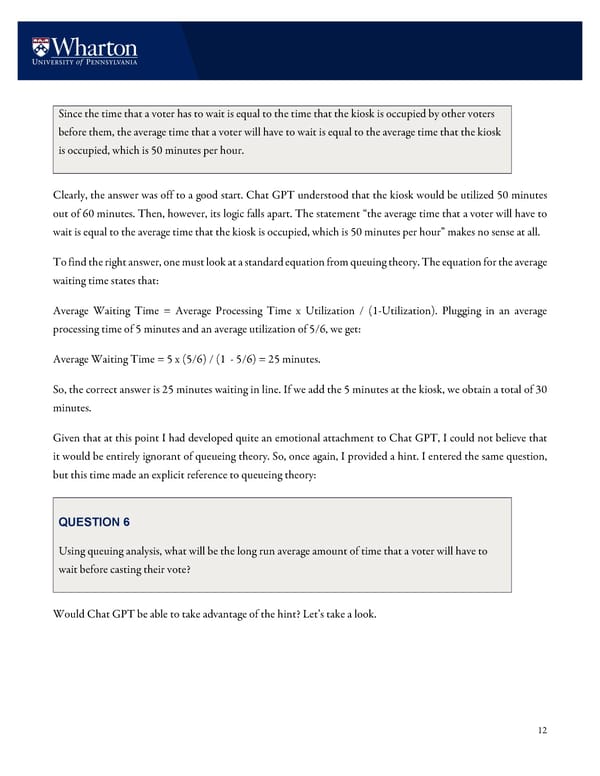12 Since the time that a voter has to wait is equal to the time that the kiosk is occupied by other voters before them, the average time that a voter will have to wait is equal to the average time that the kiosk is occupied, which is 50 minutes per hour. Clearly, the answer was off to a good start. Ch at GPT understood that the kiosk would be utiliz ed 5 0 mi nutes out of 60 minutes. Then, however, its l og ic fa lls apart. The statement “the average time tha t a voter will have to wa it is equal to the average time that the kiosk is occupied , which is 50 minutes per hour” ma kes no sense at all. To find th e right answer, one must look a t a s tandard equation f rom queuing th eory. T he equatio n for th e average waiting time state s t hat : Average Waiting T im e = Average Processing T ime x Uti lization / ( 1-Utilization). P lugging in an ave rage proce ssing ti me of 5 mi nutes and a n ave rage utilization of 5 /6, w e get: A verage W aiting Time = 5 x (5/6) / ( 1 - 5/6) = 25 minutes. So , th e correct answer i s 25 mi nut es w aiting i n line. I f we add th e 5 mi nutes a t the kiosk, w e obtain a tota l o f 30 minutes. Gi ven tha t at this point I had developed quite an emotional attachment to Chat GPT , I co uld not bel ieve that it would be entirely ignorant o f que ueing theory. So, once again, I p rovid ed a h int. I entered the same ques tion, but this time made an explicit reference to queueing theory: QUESTION 6 Using queuing analysis, what will be the long run average amount of time that a voter will have to wait before casting their vote? Wou ld Ch at GPT be able to take advant age of the hint? Let’s take a look.
 Would Chat GPT Get a Wharton MBA? Page 11 Page 13
Would Chat GPT Get a Wharton MBA? Page 11 Page 13